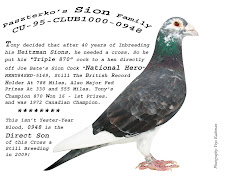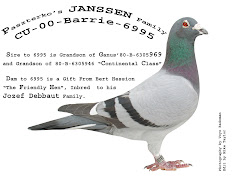Last Updated: Friday, 23 January, 2004, 14:51 GMT
Which way now? Could the pigeon's skills fall foul of new technology?
A growing number of homing pigeons are getting lost due to interference from the new "unseen enemy" of mobile phone masts, racing experts claim.
The birds' natural instincts are being confused by radiation signals from an increasing number of transmitters, the Royal Pigeon Racing Association said.
Racers say anecdotal evidence shows poor returns over the last two years.
Pigeons are thought to find their way home using landmarks and the earth's magnetic field.
Peter Bryant, of the RPRA, said its Stray Birds Committee had proposed attaching a GPS tracking device to pigeons to investigate the problem.
But currently the device - which would have to be strapped on like a rucksack - is too heavy for a pigeon to carry.
"It's fine with eagles and albatross, but for the poor little pigeons it would hamper their return," said Mr Bryant.
'Stressed'
He said it was impossible to estimate how many pigeons were vanishing because of the transmitters.
"During the World War II, thousands of aircraft carried two pigeons in case they the plane was downed so they could send messages," he said.
"The birds were also parachuted to the Resistance. Now they're facing this unseen enemy in the form of mobile phone masts."
Pigeon fancier Anne Pitkeathly, 50, from the Isle of Wight, said she was losing more and more birds.
"When I started I was told I would lose baby birds but never the big ones.
"A lot of people think it's mobile phone masts."
She claimed one of her pigeons had recently reacted badly after being near a mast, saying it was "stressed" and "trying to be sick".
Previous research by German scientists in 1999 suggested that short wave radiation had an "undefined negative" impact on homing pigeons.
It was found that exposed birds took longer to get home, flew at lower levels and were reluctant to go near transmitters.
Between 50,000 to 60,000 pigeons are estimated to have gone missing last year due to problems such as bird of prey attacks and poor weather, the RPRA said.
Read more ...















